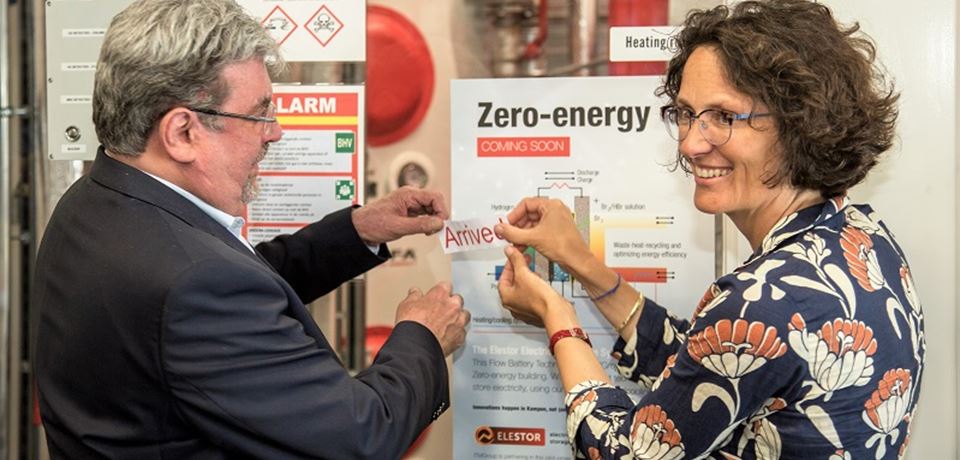Successful cooperation on the Gemini rod distribution system solidifies the partnership between ITM and CSi.
By Eleanor Spicer Rice
Tobacco Reporter
Call it a marriage of convenience, but when CSi partnered with International Tobacco Machinery (ITM) in May 2009, the two tobacco manufacturing solutions companies made beautiful music together—or at least a beautiful rod-handling system. Now, at the cusp of their four-year anniversary, they have much to celebrate with the introduction of Gemini, a revolutionary automated filter rod storage and distribution system.
The partnership began when one of CSi and ITM’s clients took a second look at tobacco production systems. Like most filter rod storage and distribution systems, their client’s production system required many workers to keep the process running smoothly. Filters would also misalign in trays, jamming production and costing time.
These factors wrinkled the production process, so two of the best production line companies, ITM and CSi, joined forces to smooth the wrinkles. Leszek Sikora, secondary division director at ITM, explains why CSi’s strengths paired well with his company’s experience. “ITM has experience with rod and tray filling and handling, and CSi has experience with material handling and accumulation systems, warehouse management, communications and factory management.”
Combining their skill sets, the two companies tackled production issues one by one in an attempt to streamline the production system. Their first hurdle: eliminating filter mix-ups and misalignments. “Gemini preferably works by using trays with compartments, where trays are filled on the filter-making side and discharged on the cigarette-making side,” says Sikora. “The compartment trays eliminate filter misalignment, which is the most important factor for automation, and allow the system to run all day without an operator.”
The single-sized compartments also minimize jammed filters during tray relocation and loading and unloading. Additionally, they eliminate the need to stop production.
Furthermore, because this unique tray-based system is automated, it eliminates the need for the large numbers of workers that were necessary under the previous production process. “With Gemini, we operate at greater than 99 percent efficiency without an operator,” he says.
Cutting back on workers pays off in two ways: First, companies are able to reduce the cost of hiring many employees to handle the system. Second, having an automated system reduces human error. “If you compare a standard tray operating system, you’ll see a system that is overloaded with people working. While the job is easy, these workers have a high responsibility because if you mix the product, you can have major consequences on the operating system,” he says. Gemini eliminates these mistakes.
But according to Sikora, reducing error and employee costs are just two benefits of using Gemini. “There are several factors, including increases in utilization of filter making, productivity per employee, volume, global efficiency of the factory, guarantee of final product quality, full tracking and tracing, and facilitating the processing of special filters,” he says. “While some factories benefit from just one of these factors, the more factors that come together, the easier it is to justify Gemini for that factory.”
To address filter processing management muddles, Gemini differentiates the filter- and cigarette-making departments. By automating filter rod storage and distribution, managers are able to focus their attention on cigarettes. “CSi proposed the most effective buffer between the filter- and cigarette-making departments,” Sikora says.
“We set out to deliver, without change in quality, a good service with all parameters maintained.” The combination of advanced WCS software, smart storage and very fast mini-loads creates an optimal solution for the filter buffer.
Some factories currently use Gemini, and Sikora says they are all satisfied customers. “Anyone observing the system is impressed. Here we have several machines working without humans, working efficiently with no mistakes,” he said. “Complete process control in all aspects is the biggest advantage of a system like this.”
Relationships, by design
While Gemini runs smoothly today, developing the compartment trays came with its own set of challenges for ITM. In particular, electrostatic energy shifted the filters undesirably once they entered the trays’ compartments. CSi and ITM examined this challenge scientifically. CSi has been working on warehouse system optimization and on the improvement of the trays’ mass flow coming into and out of ITM rod-handling equipment, while ITM focused on the compartment trays’ improvement. “We had to redesign our trays and play around with tray material and atmospheric conditions to create the correct electrical charge in the air that would neutralize the charge in the tray,” he explains. Now free of electrostatic energy, the trays are a leading component of a well-oiled machine.
Sikora says challenges like tray development were anything but a hassle. “It was exciting to solve problems like these,” he says. “We were partners in this process. In the end, we worked well together. I think this built confidence between CSi and ITM.”
The confidence built on mutual respect and collaboration has blossomed into a working relationship that promises exciting developments in the future. “This cooperation bound us in the field to work together,” says Sikora. “We are preferred partners and support each other as much as we can.”
From: Tobacco Reporter


